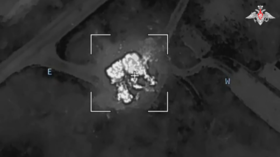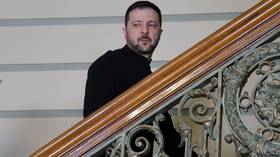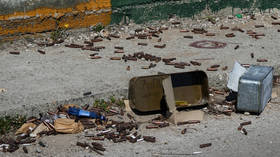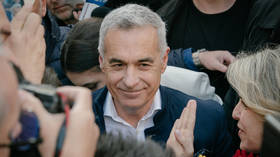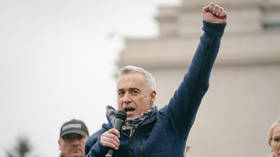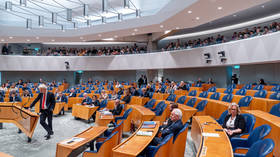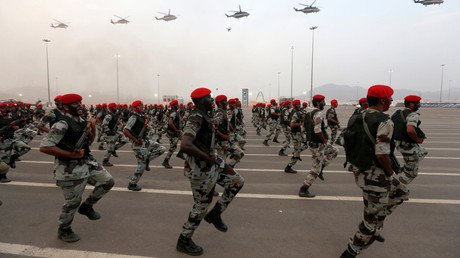US doctor recalls ‘horrific night’ NATO bombs fell on Belgrade as he performed heart surgery on baby
A US surgeon who was operating on a small child in Belgrade in the spring of 1999 when NATO bombs began falling on the city has told RT that he’d never experienced anything of “such magnitude.”
Doctor William Novick recalled how he and his team of American medics had come to what was then Yugoslavia before the NATO campaign. They thought they would be safe in the capital but “misjudged what was going to happen.”
“We were asked by the US embassy in Belgrade on the previous weekend to evacuate with them,” he said. But the medics took a vote and decided to stay in the beleaguered city, as they had two children in their care that were in urgent need of an operation.
Also on rt.com ‘Forgive, but not forget’: Serbia won’t be in NATO, leaders say 20yrs after Yugoslavia bombingNovick was performing heart surgery on a 10-day-old baby on March 24 of that year “when the air raid signals started going off not long after sundown, and the bombs started dropping within a few minutes after that.”
“That was one of the most horrific nights that I’ve experienced…. [From the hospital building] I saw more than one cruise missile that night and a number of fighter bombers as well. I’ve not experienced anything of that magnitude before,” he said.
20 years ago, the US and its allies accused Belgrade of “excessive and disproportionate use of force” in a conflict over an ethnic Albanian insurgency in Kosovo, and launched an attack on Yugoslavia, without approval by the UN Security Council.
Also on rt.com ‘NATO bombing of Yugoslavia paved way for 1 million civilian casualties worldwide’During the 78-day bombing campaign, NATO warplanes flew 900 combat missions, which resulted in at least 758 civilian deaths, according to official information. Serbian sources, however, put the death toll at twice that number.
Depleted uranium was used in the NATO airstrikes on Yugoslavia, and studies show that children born there after the bombing are prone to cancer. Gasic, however, said that “very little” has been done to hold the bloc accountable.
Yugoslavia attempted to sue NATO, but its “response was to create a ‘Color Revolution’ [in 2000] there and bring its own puppets to power… who abandoned the lawsuit.”
Also on rt.com How NATO bombed Serbs into submission and left toxic legacy behind (DOCUMENTARY)“The world community really needs to take NATO to task. And If Serbia is too weak to do it, we need other countries to take an interest. If they don’t defend Serbia – it’ll be their borders next that NATO will be coming for,” the analyst warned.
Carried out under a false pretext and in disregard of the UN, the NATO bombing of Yugoslavia in 1999 paved the way for similar US-led operations in Iraq, Libya and elsewhere and over a million were killed, an analyst has told RT.
Think your friends would be interested? Share this story!


